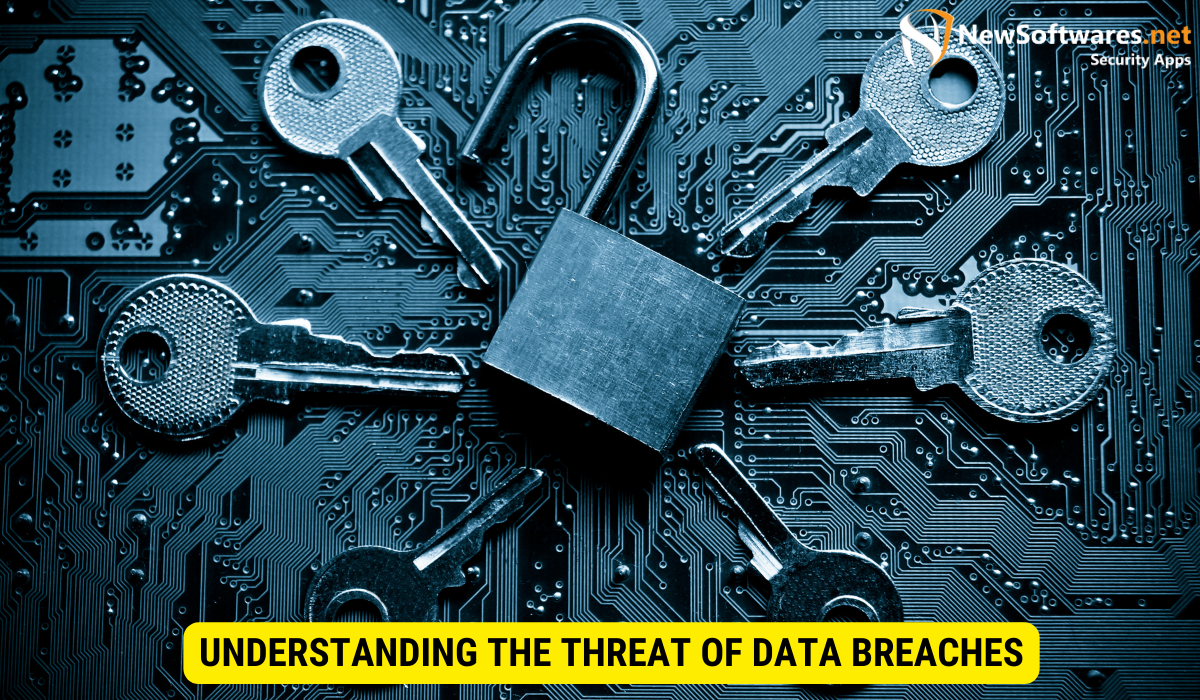Securing a new Social Security Number (SSN) is a complex process, often reserved for severe cases like identity theft. It involves providing evidence of misuse to the Social Security Administration. Alternative strategies include stronger personal data security measures and using identity protection services.
Data breaches have become a growing concern in our increasingly digital world. The theft and misuse of personal information can have devastating consequences, both financially and emotionally. As individuals, we must understand the threat of data breaches and take steps to protect ourselves. One option that many people consider is securing a new Social Security Number (SSN) for heightened protection. Together, we will explore the rising incidence of data breaches, the role of SSNs in these breaches, the process of obtaining a new SSN, and strategies for heightened protection. We will also discuss the steps to take following a data breach and the legal recourse available to victims.
Understanding the Threat of Data Breaches

Data breaches occur when illegal individuals gain access to sensitive personal information. The rising incidence of data breaches in recent years has put millions of individuals at risk. Cybercriminals use various techniques, for instance hacking, phishing, and malware, to gain access to databases containing personal information. The possible impact of a data breach can be significant, leading to identity theft, financial loss, and damage to one’s reputation.
The Rising Incidence of Data Breaches
Data breaches have become alarmingly common in recent years. Large-scale breaches impacting major organizations continue to make headlines, but small businesses and individuals are not exempt from these threats. The growing reliance on digital platforms & the interconnectedness of our lives make us more vulnerable to data breaches.
In today’s digital age, data breaches have become a constant concern for individuals and organizations alike. The rapid advancement of technology has provided cybercriminals with new and sophisticated ways to exploit vulnerabilities in security systems. As a result, the number of data breaches has been steadily increasing, leaving no industry or sector untouched.
One of the reasons behind the rising incidence of data breaches is the growing value of personal information on the black market. Cybercriminals can sell stolen data to other criminals, who can then use it for various illicit activities. This underground economy thrives on the constant supply of personal information obtained through data breaches, fueling the motivation for hackers to continue their malicious activities.
Moreover, the interconnectedness of our lives has made it easier for cybercriminals to target individuals and organizations. With the propagation of smart devices and the Internet of Things (IoT), our personal information is scattered across various platforms and databases. This creates multiple entry points for hackers to exploit, increasing the likelihood of a successful data breach.
The Potential Impact of a Data Breach
The impact of a data breach can be far-reaching. Once personal information is compromised, cybercriminals can use it to commit fraud, open credit accounts, file false tax returns, and more. Victims of data breaches often spend significant amounts of time & money trying to cure the damage caused by identity theft.
Identity theft is one of the most common consequences of a data breach. With access to personal information such as social security numbers, addresses, and financial details, cybercriminals can assume someone’s identity and wreak havoc on their financial and personal life. Victims may find themselves dealing with unauthorized credit card charges, loans taken out in their name, and even criminal records falsely attributed to them.
Financial loss is another significant impact of a data breach. Once cybercriminals gain access to personal information, they can drain bank accounts, make unauthorized purchases, and engage in other fraudulent activities. Victims may face significant financial hardships as they try to recover their stolen funds and restore their financial stability.
Furthermore, the damage caused by a data breach extends beyond the individual level. Organizations that experience data breaches often suffer reputational damage, losing the trust of their customers and stakeholders. This damage of trust can have long-lasting effects on the organization’s lowest line, as customers may select to take their business elsewhere, and investors may become wary of supporting a company with a compromised security system.
In conclusion, the threat of data breaches is a growing concern in today’s digital landscape. The increasing incidence of breaches and the potential impact they can have on persons and organizations highlight the crucial need for robust cybersecurity measures. Individuals must stay vigilant and take proactive steps to protect their individual information, while organizations must invest in advanced security systems and practices to safeguard their databases and maintain the trust of their stakeholders.
The Role of Social Security Numbers in Data Breaches
Social Security Numbers play a crucial role in data breaches. They are valuable pieces of personal information that cybercriminals can use for fraudulent activities. Understanding how SSNs are used and the risks associated with their exposure is essential in securing our personal information.
How Social Security Numbers are Used in Fraud
Criminals can use SSNs to create fake identities, apply for advances or credit cards, and file fraudulent tax returns. Once they have access to a person’s SSN, they can assume their identity and wreak havoc on their financial and personal lives.
The Risk of Social Security Number Exposure
When a data breach occurs, SSNs are often among the information that is stolen. The exposure of SSNs puts individuals at a from top to bottom risk of identity theft and financial fraud. It is essential to protect our SSNs and take active measures to decrease the risk of exposure.
Securing a New Social Security Number
Obtaining a new SSN can be a drastic step towards protecting oneself from the potential consequences of a data breach. However, it is not a decision to be taken lightly. Understanding the procedure and weighing the pros and cons is crucial before considering this option.
The Process of Obtaining a New Social Security Number
Obtaining a new SSN is a complex and often challenging process. It involves providing substantial documentation to prove the need for a new number. The Social Security Administration administers the process and requires a valid reason, such as documented instances of identity theft.
The Pros and Cons of Changing Your Social Security Number
While changing your SSN may offer a fresh start and increased protection, it is not without its drawbacks. The new number may not entirely sever the ties to your old one, and updating all your records can be time-consuming and complicated. It is vital to weigh the pros & cons sensibly and seek professional advice if necessary.
Strategies for Heightened Protection Against Data Breaches
While obtaining a new SSN is one option, there are also other strategies to consider for heightened protection against data breaches. Implementing stronger personal data security measures and utilizing identity protection services can help safeguard personal information.
Implementing Stronger Personal Data Security Measures
Protecting personal information starts with implementing stronger security measures. This includes using exclusive and strong passwords, enabling two-factor authentication, keeping software and applications up to date, and being cautious when sharing private information online.
Utilizing Identity Protection Services
Identity protection services can provide an added layer of security by monitoring credit reports, alerting individuals of suspicious activity, and assisting in resolving possible instances of identity theft. These services can help individuals detect and lessen the effects of a data breach more effectively.
Navigating the Aftermath of a Data Breach

In the unfortunate event of a data breach, it is crucial to take immediate action to minimize the potential damage. Knowing the essential steps to take following a data breach can be crucial in safeguarding personal information and protecting oneself from further harm.
Steps to Take Following a Data Breach
After a data breach, it is essential to change passwords, monitor bank and credit card statements for any illegal activity, place a fraud alert on credit reports, and consider freezing credit if necessary. It is also advisable to report the incident to the appropriate authorities and affected institutions.
Legal Recourse for Data Breach Victims
Data breach victims may have legal recourse, depending on the circumstances surrounding the breach. It is important to consult with legal professionals who specialize in data breach cases to understand the available options and pursue any necessary action.
Key Takeaways
- Understanding the threat of data breaches and the potential impact is crucial for safeguarding personal information.
- Securing a new Social Security Number can be an option for heightened protection, but it is vital to weigh the pros and cons sensibly.
- Implementing stronger personal data security measures and utilizing identity protection services can provide added protection against data breaches.
- Knowing the essential steps to take following a data breach can help minimize the potential damage and protect oneself from further harm.
- Data breach victims should consult legal professionals to understand their legal recourse and pursue any necessary action.
Frequently Asked Questions
Q: How common are data breaches?
A: Data breaches have become alarmingly common in recent years, impacting both large organizations and individuals.
Q: What can criminals do with a Social Security Number?
A: Criminals can use Social Security Numbers to create fake identities, apply for loans, file fraudulent tax returns, and commit various forms of financial fraud.
Q: Is obtaining a new Social Security Number the only option for protection?
A: While obtaining a new SSN is one option, individuals can also implement stronger personal data security measures and utilize identity protection services.
Q: What should I do if I suspect my personal information has been compromised in a data breach?
A: It is important to change passwords, monitor financial statements, place a fraud alert on credit reports, and report the incident to the appropriate authorities and affected institutions.
Q: Do data breach victims have any legal recourse?
A: Data breach victims may have legal recourse, and consulting with legal professionals is advisable to understand the available options.
Conclusion
Data breaches pose significant risks to individuals, both financially and emotionally. Securing personal information and navigating the aftermath of a breach can be daunting, but taking proactive measures can help mitigate the potential damage. While obtaining a new Social Security Number is one option for heightened protection, it is important to weigh the pros and cons carefully. Implementing stronger personal data security measures and utilizing identity protection services can provide additional layers of security. By understanding the threat of data breaches, individuals can take the necessary steps to navigate these dilemmas and safeguard their personal information.
